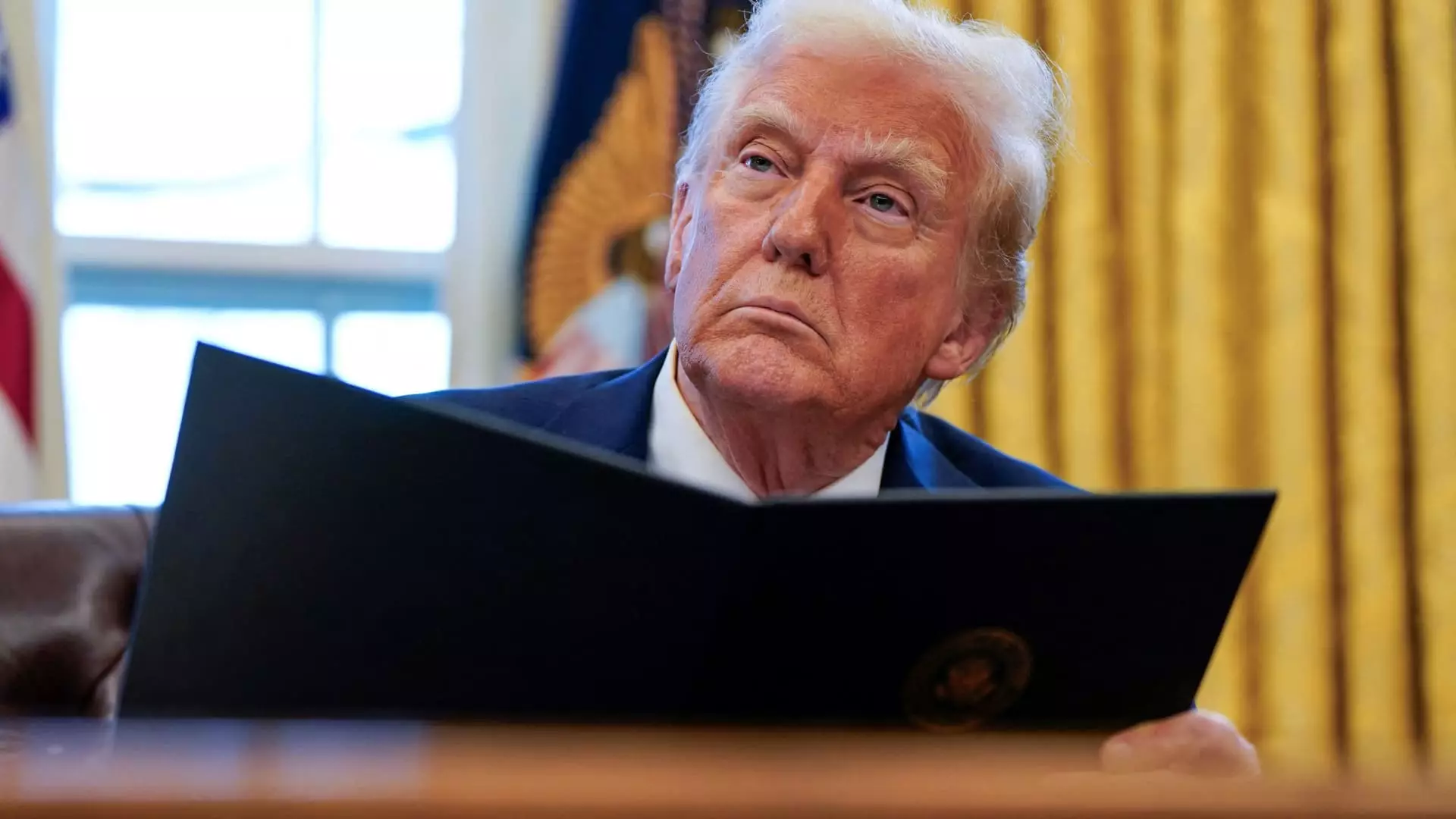In a significant political maneuver, the White House has officially unveiled a series of tariffs spearheaded by President Donald Trump, aimed chiefly at pivotal trading partners such as Mexico, Canada, and China. This decision, unveiled after weeks of speculation, has economists and market players alike bracing for potential turbulence, as the specifics of the implementation remain unclear. These tariffs, including a hefty 25% duty on imports from Mexico and Canada and a 10% tariff on Chinese goods, are positioned as direct measures in response to the ongoing opioid crisis largely attributed to the illegal distribution of fentanyl across U.S. borders.
The swift announcement prompted an immediate reaction in the financial markets, causing a notable drop in the Dow Jones Industrial Average along with decreases in both the S&P 500 and Nasdaq Composite indices. Investors, who had seen a solid upswing in earlier trading sessions, suddenly faced uncertainty as the implications of new tariff policies began to settle in. Such fluctuations are not unwarranted, as past experiences suggest that tariffs can instigate a chain reaction of inflationary pressures—something the Federal Reserve is keenly monitoring. As inflation readings seem to stabilize after past spikes, there is now apprehension that these tariffs may disturb the fragile equilibrium.
Leavitt, the White House Press Secretary, justified these tariffs by framing them as both a fulfillment of Trump’s promises and a necessary step in combating drug trafficking and illegal immigration—a central theme of Trump’s administration. A stark comparison was made by Trump’s trade advisor, Peter Navarro, emphasizing the gravity of the fentanyl crisis by likening its annual fatalities to the capacity of the Superdome in New Orleans. This rhetorical device is aimed at galvanizing public support and framing the tariffs as a moral imperative rather than a mere economic adjustment.
Despite the administration’s stated reasons for imposing these tariffs, significant worries loom over the potential for retaliatory actions from the affected nations. The absence of clarity regarding exemptions and specific implementations leaves room for speculation about escalating trade tensions. Such tensions could provoke an economic backlash, raising consumer prices, slowing international trade, and straining diplomatic relations. Economists contend that the timing of these tariffs could not be more precarious, as the U.S. economy is delicately poised, needing a climate of stability rather than unpredictable fluctuations.
The Federal Reserve remains vigilant amid these developments, with officials conducting ongoing evaluations of fiscal policies’ implications on economic stability. Governor Michelle Bowman’s remarks underscore the critical necessity for clarity regarding the tariffs’ structure in conjunction with predictions about economic response. As concerns proliferate regarding inflation, the Fed is positioned to react accordingly should market disruptions transpire due to tariff-induced volatility. Chicago Fed President Austan Goolsbee offers insight into an intricate interplay, noting that the sustainability of tariffs will determine whether current economic challenges escalate.
As President Trump’s administration implements these tariffs, the broader repercussions will likely take time to unfold. Given the considerable volume of trade—amounting to approximately $1.6 trillion annually with Canada, Mexico, and China—the stakes are significantly high. Markets, consumers, and businesses must brace themselves for the potential aftershocks of this aggressive policy. Moving forward, clarity will be vital: not just in how these tariffs are structured, but in how both domestic and international players react. In essence, while Trump’s tariffs are being spun as a decisive step against drug trafficking and illegal immigration, the real test will lie in whether they can achieve intended targets without destabilizing the intricate web of the global economy.

Leave a Reply